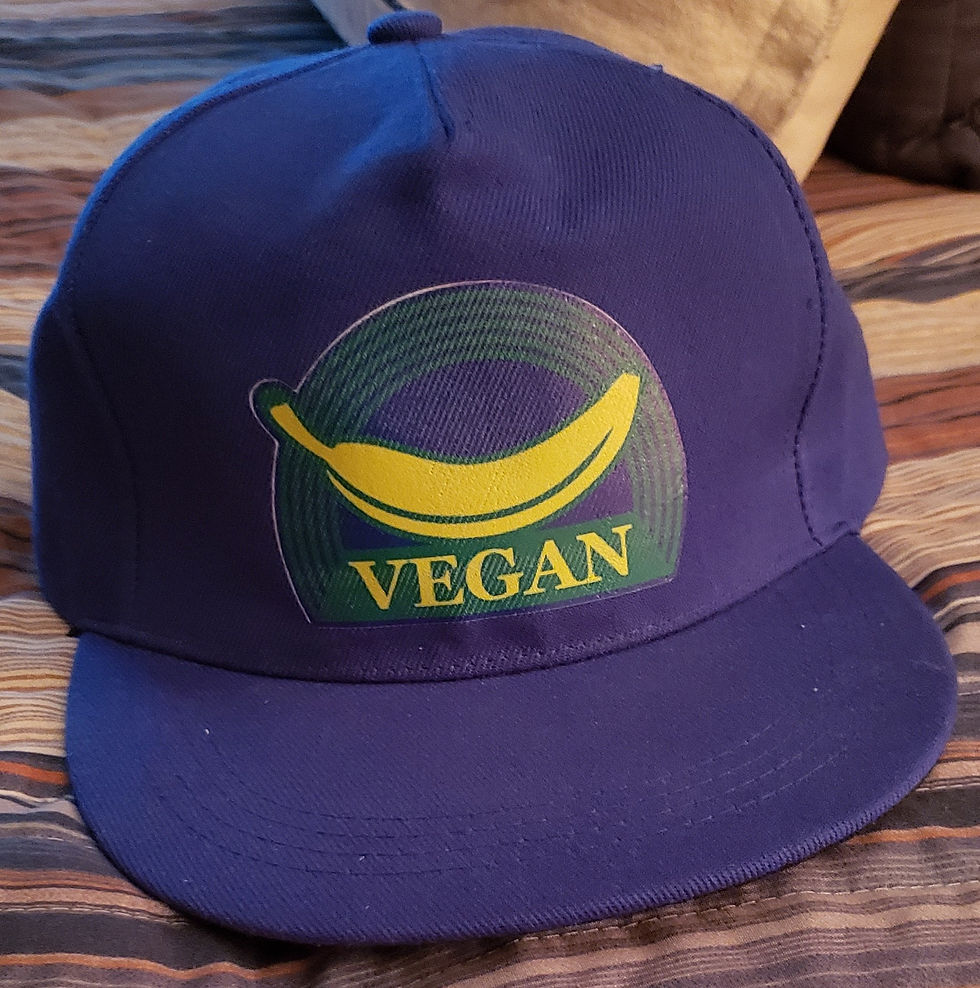You Cannot Argue Against Veganism | Argumentative Analysis
- PracticalPisces
- Jul 26, 2022
- 7 min read
Updated: Jan 29, 2023

Note: If you have no control over what you eat, or wear, daily, most of the content in this article does not apply to you.
Or better yet, you cannot do so well. The title of this article does not mean that "vegans will never listen to you so never attempt to get your point across," it just means that there are no good arguments against the practice.
Keep in mind while you read, two situations do not have to be equivalent to be analogous.
The context that makes veganism applicable is living in a civilization that grants you many different options for food, clothing, and artistic expression. This means that arguments about a "deserted island" or "indigenous people" fall flat immediately. It is not wrong for people outside of industrialized and agricultural civilizations to fight for survival. Eating meat, and other animal byproducts, is not inherently immoral. Are we on the same page?
Veganism is about avoiding the harm or destruction of nonhumans as much as practically possible. So, one cannot argue that stepping on bugs on the way to the mailbox goes against the philosophy. What matters is intent. Also, no vegan intends for animals to die when crops are harvested (vegans are not the only ones who eat vegetables, fruits, and other plant foods). As long as one tries to avoid causing needless animal death, they can themself a "vegan."
Typically, when people attempt to argue against the philosophy, they go into a spiral of bad arguments that take less than a minute each to defeat. Here are some examples:
1) "Humans are omnivores."
2) "Humans are morally superior to (other) animals."
3) "Animals are here for us to eat."
4) "Eating meat is 'natural.'"
5) "We have dominion over the (other) animals."
6) "If I had to pick between a human and a cow, I would pick (save) the human."
7) "We will all die, so why not do what we want?" (facepalm)
8) "It is the circle of life."
The first argument fails because an animal eating like an omnivore does not make it an omnivore. Deer consume flesh sometimes, Arctic hares occasionally consume carrion, and a pika just might eat a bird if it feels like it, but none of these animals are omnivores. All of them are classified as herbivores. Is this snake an herbivore now? Are crocodilians omnivores now? Recent science has proven that the healthiest diet for a human is entirely plant-based. Long-living human populations usually ate, and still eat, a heavily plant-based diet (note: not entirely). Here is some proof. Here is the Greek diet. Fiber feeds gut bacteria. Sugar fuels the brain. Carbohydrates are stored and used for energy. Non-heme iron has a lower absorption rate, but the body can control how much it takes in, unlike with heme iron (too much iron increases disease risk). I think it is safe to say that we evolved to eat exclusively plants (but meat when there are few options).
"Moral superiority" is one of the stupidest arguments on the list. Humans are not necessarily morally equivalent to each other. One's family and a stranger are not morally equivalent. Heck, some people believe that the family dog has more value than their neighbor(s). Need I remind you that humans are still learning to treat each other equally and civilly today? Classism, anyone? The African slave trade lasted for less than, or equal to, three-hundred-and-seventy-three years. (If you think that this is a bad argument then consider the common carnist argument "people have eaten meat for years." People have also killed for honor for years. Are these actions justifiable today?) Why must two organisms be morally equivalent for us to treat them well? If I value my family more than my neighbors, can I harm them (I would not do this, I am making a point)? If you had to decide whether to harm a person, a nonhuman animal, or neither, why would you not choose the last one? The only answer is careless gratification. (Do not appeal to legality. Research what atrocities were legal in the past.)
The third is laughably stupid. Animals only approach humans out of curiosity or if the latter has gained their trust. The millisecond an animal detects danger, it will run as fast and as far as it can in the opposite direction. Why would anyone designed for consumption be hard to consume? Why do animals as small as a cricket have an evident will to live (aversion to pain)? Why would there be a risk to catching an animal if they are here to serve us? Why do some animals eat humans? Why do large, herbivorous animals kill many humans each year? Also, why are humans physically incapable of killing most animals? Barring strangulation, the human body is not designed for combat with large and strong animals, be it an herbivore or a carnivore.
Now for the fourth. Many bad things happen in nature. In order for society to work, many "natural" tendencies must be suppressed. Urinating and/or defecating in public is barred. For some reason, breastfeeding in public has been barred. Belching in public is often frowned upon. Scratching certain areas of the body is socially prohibited. Pursuing a mate when he or she is unwilling is called "sexual harassment" and this is obviously immoral (but it happens daily in the wild like all of the other taboos listed here). The extreme scenario where the pursuer succeeds because the resistance of the target fails to stop them also happens plenty, but no one (rational) would argue that it is fine because "it is natural." Also, this argument fails because science agrees with an entirely plant-based diet. Just because homo sapiens required meat to survive in the past, does not mean that modern, luxury consumption of it is justified.
The "dominion" argument. Even if a god, or gods, gave humanity dominion over other animals, this would not give us free reign to abuse and/or kill animals for entertainment, food, or clothes. European monarchs believed that they were chosen by God himself to rule over the people in their civilization. If they were bad to their subjects, they were bad kings and/or queens. I am rather certain that God would not be happy with the person/people he specifically chose and favored for the role abusing his/her/their power for personal gratification. If God was, and is, pleased by this, then what is the devil's job again?
The "one or the other" argument. A close cousin to the "deserted island" argument. Allow me to up the stakes. If the person next to the cow was a convicted murder, would you feel the same? How about a convicted rapist? A child molester? What about the cow? What crime is she guilty of? Cows only attack when threatened. Stay out of the pasture and there is no problem. Going back to the moral argument, allow me to raise the stakes. If you had to pick between an innocent child and an innocent adult (there is no third option) and you have a pistol in your hand, who would you pick? Which one has the higher moral value? Answering this question would mean that humans are not morally equivalent. Or you could just choose one and not think about morality at all if humans really are morally equivalent. If all sins are equal in God's eyes, why even think? Now tell me, which one would be okay to mistreat based on moral superiority and nothing else? Remember when I said that you could live without harming either? That is the best choice (outside of the hypothetical).
"We will all die someday." Do I really need to point out the issue with this argument? It justifies just about every atrocity humans have committed since our genesis. Done.
"It is the circle of life." No. Humans often kill, directly or indirectly, for pleasure and nothing else. When a wolf pack makes a kill, the remains of the carrion provide food for scavengers as well as plants. When humans kill, only they, and their cohorts, benefit. The environment does not necessarily improve after someone kills a few deer. "Their population is too high because of the lack of predators." First, look who is talking. Second, who culled the predators to keep their domestic animals "safe?" (Wolves eating farm animals is the circle of life, but that lowers the profits for humans. We cannot have that.) Luxury eating is not in line with the circle of life. Animals typically eat for energy. Humans typically eat for pleasure.
Now for typical closing arguments:
1) "Live and let live."/"To each their own."
2) "I respect your decision. Please respect mine."
3) "Stop forcing your beliefs on me/shoving your beliefs down my throat."
Numero uno is hypocritical because it only awards consideration to humans, specifically the person making the argument. It is a "get out of jail free" card if you will. If you do not allow the victim(s) of your choices to "live and let live" then your argument falls flat. No one would make that argument in favor of criminals. Why make it in this context? "Did he just compare eating meat to being a criminal?" Yes. "Did he just equate eating meat to being a criminal?" No. If others are involved in your activities and are harmed by them, then it is not a personal choice. If you have an alternate option, and you are aware of it, but refuse it, you are the problem. Please do not try to run away from reality.
Number two is silly for the same reasons as the previous argument. Just because you respect someone for not wanting to do harm that does not mean that they must respect you for doing the opposite. Again, no one would respect a criminal's activities if they made the same argument. I personally do not respect scammers. I do not respect larcenists. I can accept their existence, but I refuse to respect them.
Number three is the argumentative equivalent of "shut up and leave me alone." It serves to hush the messenger and keep the recipient comfortable. Acknowledging cognitive dissonance makes people uncomfortable, so to cope, they must convince themselves that either the messenger is wrong or somehow their actions can be justified, or both. You cannot escape responsibility. Your actions have consequences. You are the oppressor, not the oppressed. You can change that today.
I advise you to stop playing the victim. Someone bringing the consequences of your actions to your attention is not an attack. Someone asking you to change your ways for the better is not an attack. Please, just take a little responsibility. No one deserves instant gratification. You will be fine without your animal-based conveniences. Many before you were fine without meat. They lived on. You will too.




_edited.jpg)





Comments